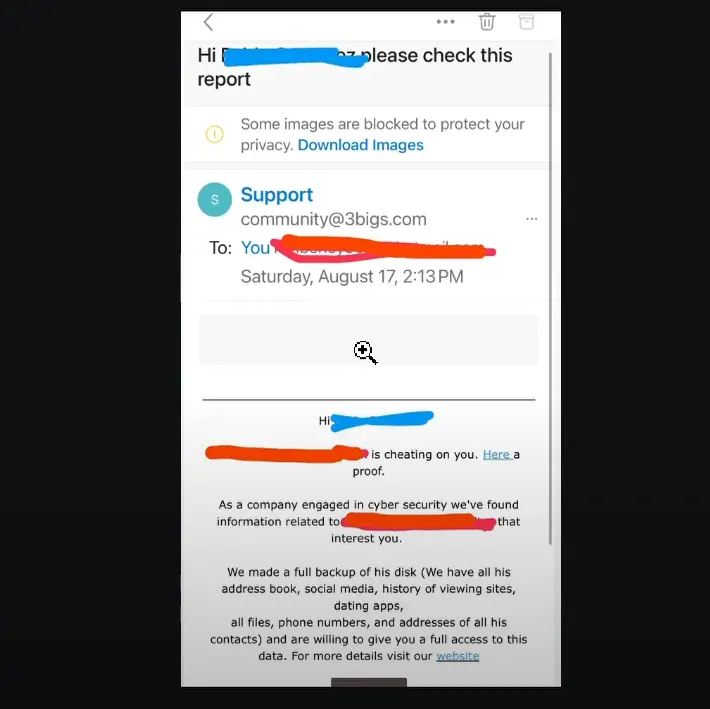Imagine getting an email claiming your partner is cheating on you. It includes both of your names and a link to “proof.” Scary, right? This is the Partner Know email scam.
It uses fear to trick you into giving away personal details, downloading harmful software, or sending money. Knowing how this scam works can help you stay safe.
What Is the Partner Know Email Scam?
The Partner Know email scam is a phishing trick designed to mess with your emotions.
The email might look real because it uses personal details like your name or your partner’s name.
It claims to have private information, like text messages or phone data, showing your partner’s supposed infidelity. To see the “evidence,” the email asks you to click a link.
Here’s the truth: the link can install harmful software, ask for personal information, or demand payment in cryptocurrency. These emails don’t have real evidence.
Scammers often get personal details from public data, like wedding planning websites or breached accounts.
Scammers usually send these emails right after big life events, like getting married or applying for a marriage license. They hope the timing and personal details will make the email seem real.
But you can spot signs of a scam, like bad grammar, missing sender info, or demands for money.
Our Review
After looking at reports, it’s clear the Partner Know email scam is a fake designed to steal your information or money.
Many people who got these emails noticed they came shortly after using wedding websites or public marriage registries.
The emails use manipulative language to create fear and make people act without thinking. Legitimate companies don’t send messages like this without clear identification.
If you click the link in the email, you might end up on fake websites that ask for passwords, personal details, or cryptocurrency payments.
Worse, the link could download harmful software onto your device. Scammers rely on you panicking and not stopping to think.
To stay safe, mark these emails as spam, don’t click on any links, and report them. Review your online accounts to make sure they’re secure.
Set social media profiles to private and use two-factor authentication for extra protection.
What to Do If You Get Scammed
If you think you’ve fallen for the scam, follow these steps right away:
- Disconnect Your Device: Turn off the internet to stop more harm.
- Run Antivirus Software: Scan your device and remove any harmful programs.
- Change Your Passwords: Update all passwords, especially for email, banking, and social media. Use strong, unique passwords.
- Enable Two-Factor Authentication (2FA): Add an extra security step to your accounts.
- Report the Scam: Let your email provider know. You can also report it to the FTC or local authorities.
Vital Grow XL Gummies are chewable supplements made to support male sexual health.

